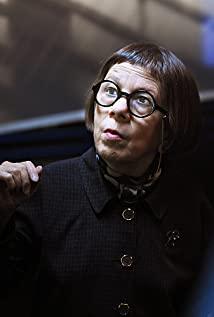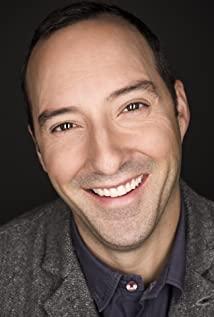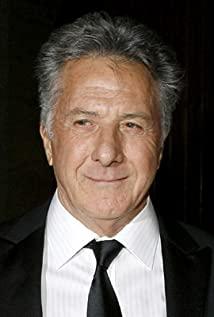Many people commented that the ending was not very good, so I wrote this to express my understanding of the ending and the whole story.
1. Does the original story have the role of a writer?
Does anyone have this question?
I would guess that because when the male protagonist called the writer, the writer looked puzzled, and immediately stopped the assistant from answering the phone, and then rang the second or third time to test. If the same plot is not mentioned in the novel, how can normal people have such a hunch (the novel is connected with reality)? I initially thought that if the original story included the writer, then the ending of the hero who made the masterpiece and went to death would be really poetic.
But in the end, I don’t think it is included. The female writer has made it clear when she asked the professor why she changed the ending: she was going to write about a person who didn’t know she was going to die, but if the other party knew she was going to die and chose to do it, everyone would disagree. bear to let him die.
There is a scene in the film where the female writer said in an interview that the work is about "connection". Therefore, the "greatness" of the original story, which is different from ordinary works, should be similar to the story of an incident similar to the "butterfly effect". Various details and small actions caused the death of the protagonist. Conversely, if the original story includes a writer, the heart of the novel is the writer-character encounter.
2. In this way, how can the ending of the original story be "simple and heart-wrenching", "meaningful and poetic", "perfect" and "inevitable"?
According to the setting in the story, what has been printed will come true. There is such a prophecy: The act of adjusting the watch by the male protagonist caused his imminent death. Then this sentence must be echoed. The female writers in the back are looking for "death methods", whether it is jumping off a building or crashing a car, they are just looking for someone who can correspond. So as long as the novel is to be written, the male protagonist will inevitably "face death", and it will happen soon, which is "inevitable".
Secondly, the male protagonist's setting is to "follow the rules and always act according to the watch", the ending is very logical to catch the bus according to habit, and through a series of changes before his death, we can see the true temperament of this seemingly rigid person , then the ending is willing to sacrifice oneself to save people, which is in line with human nature. So the ending can be said to be perfect.
So where is the poetry? I think it may not be because of the behavior, but more because of the language. The description of the male protagonist before the crash is very beautiful (the original text will be added later), such stories of righteousness and courage are not uncommon in real life, but through the hands of the writers The description adds to the poetic, more sympathetic and heartache.
3. Why is the professor so "indifferent to life"? Why is the hero willing to die?
Of course, I don't understand why the professor didn't help the male protagonist to find a way to rewrite the ending. Maybe he was happy with the original story.
The male protagonist was very reluctant to accept it at first, but after reading the novel, he changed, why?
I want to insert a sentence here, I think we should agree: as a work of art, film originates from life and is higher than life. According to the theme of this film, the protagonist should not only show "cherishing his life", but also have a different ideological realm from ordinary people.
Originally faced with this predicament, the male protagonist had three options.
① Prevent the writer from completing the novel. However, in this way, the writer will not release the pigeon until the deadline, and the publisher may not agree.
②Let the writer rewrite the ending, but it is likely to be nondescript. I said before that the prophecy needs to be taken care of, but who knows what will happen if it is not taken care of? The writer's story is likely ruined, adding a pile of scrap paper to history, but the male lead survives anyway.
③ Accept the ending. Then according to the setting, the male protagonist will also die as written in the novel (no one will argue why he has to act according to the novel?).
Maybe the movie also wants to express the charm of literature through the choice of the male protagonist. The male protagonist's life is very similar to the daily life of all ordinary salarymen, monotonous and boring. But in the author's pen, even the sound of fingertips flipping through the archives has become the romantic sound of waves. So what I understand is that the writer's writing was so good, he was so moved that he thought the book should be done.
Like the professor said, everyone has to die, and the world is in a hurry, and some people feel that this trip is worthwhile. A person like the male protagonist probably has an ordinary life, but if he follows the script, he only needs to act with consistent instinct, and he will always be remembered by the world (a famous writer and excellent works are very, very important prerequisites), he life is no longer mediocre. Someone asked, "If you were Hamlet, would you be willing to die?" I haven't read "Hamlet", but I know that as long as you are in the setting of "you are the protagonist of a famous writer's masterpiece", willing to die is an absolute standpoint. Hold your feet.
4. A more perfect version of the story than perfect
The movie starts with the narration of the female writer and ends with the printer hitting End. This is a rewritten new story, and it is a more perfect, higher-level and more poetic version.
The opportunity for the change of the male protagonist in the original story was probably to meet the female protagonist, while the male protagonist of the new story changed because he knew his fateful future. It's more innovative and a cautionary tale: don't live numbly. This is a revelation from a deep understanding of death.
The beginning of the story is "this story is about Harold and his watch", the ending is natural whether it is "wristwatch saved/killed his life", but the comedy ending makes the whole story very cute and heartwarming.
Whereas the original story was about the small details of tuning the watch that led to fatalities, the new story focuses more on the changed bits of life, beautiful and ordinary details that bring hope and miracles. It's also an inspiring revelation: focus on the little things in life. Isn't this very poetic?
So I think the whole story is so perfect, I briefly rewatched it and thought it was a very warm film.
5. How do you understand the sentence at the end "...those details are here to save our lives" and why?
To be honest, I'm not very good at guessing the creator's intentions, and I mainly want to record the ending paragraph.
I really like the description of the ending, and the English that the characters speak is very good.
(The following is excerpted from someone else's article + modified)
As Harold took a bite of Bavarian sugar cookie he finally felt as if everything was going to OK Sometimes, when we lose ourselves in fear and despair When we are in fear, in despair in routine and constancy, in hopelessness and tragedy, we can thank God for Bavarian sugar cookies. And fortunately , when there aren't any cookies luckily when there are no cookies we can still find reassurance in a familiar hand on our skin or a kind and loving gesture or a subtle encouragement or a loving embrace or an offer of comfort Not to mention hospital gurneys not to mention hospital stretchers and nose plugs and swimming nose clips and uneaten Danish and the uneaten Danish and soft-spoken secrets and the whispering secrets and Fender Stratocasters and the Fender Tritcaster guitar and maybe the occasional piece of fiction and maybe the occasional piece of fiction And we must remember that all these things the nuances, the anomalies, the subtleties which we assume only accessorize our days are, the nuances, the anomalies, the subtleties in fact, here for a much larger and nobler cause: They are here to save our lives.They're here to save our lives I know the idea seems strange, but I also know that it just so happens to be true. And so it was: This is: A wristwatch saved Harold Crick
I understand it, "save our lives" - the watch saved the man's life is easy to understand, and other kind and beautiful details are "save our lives", because they save people from "the nothingness of life" "In the rescue, there is a little "help" meaning.
Let's briefly analyze:
Caring, encouraging, hugging, comforting... These kind transmissions can make life better, instead of living in numbness.
Not to mention the actual items like hospital stretchers and swimming nose clips, which are all concerned for our safety, even though we don't pay attention to them.
Or the hungry Danes symbolize charity, whispers symbolize love, Fender guitars symbolize dreams, and novels are poetry that we directly savor? Life will be enriched and ennobled by these.
In short, all these details also constitute the meaning of our life.
Finally, I hope you can point out the illogical, inappropriate words, and unreasonable points in what I wrote.
View more about Stranger Than Fiction reviews











